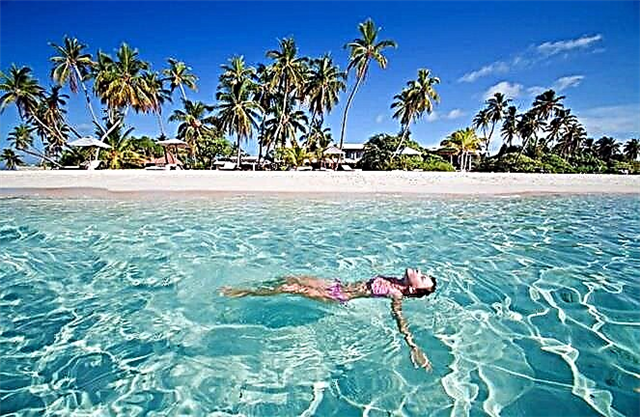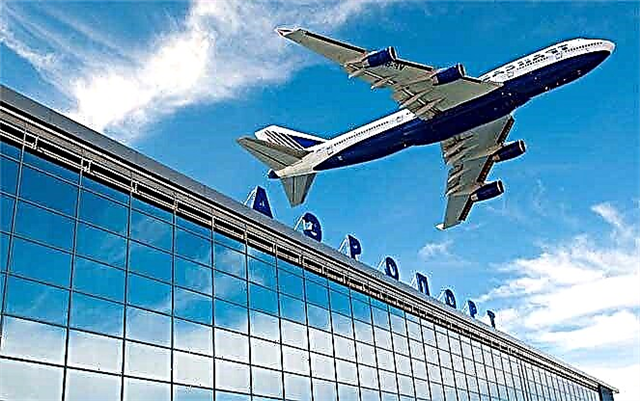In the past, close cooperation united the then Yugoslavia and the Soviet Union, now Montenegro and the CIS countries. That is why the Balkans are the second home for many of our migrants. A lot of money is invested by Russian-speaking investors in the service sector and especially tourism. Therefore, Russians live in Montenegro well, but basically, as they say, everyone is on his own.

What is the situation with migrants in Montenegro
Montenegro is popular not only among Russian migrants. This small state is attractive for immigration and among European citizens. The reasons for moving here can be completely different, including seeking refuge.
The influx of emigrants to Montenegro has been observed since the early 2000s. So, in 2021, according to statistics, more than 2,300 applications for immigration were received, of which the majority were from refugees from Syria. There are also many Iraqis, Afghans, and residents of Kosovo among the migrants.
For immigrants from the Middle East and Asia, Montenegro is a kind of transit for migration to other European states. In 2021, there was a surge in migrants from Greece and Albania due to the proximity of these countries to Montenegro: a total of 1,611 asylum applications were received.
If we calculate how many Russians are in Montenegro, the percentage will be about 0.15% of the population (946 people). The entire population of Montenegro for 2021 is 629,335 inhabitants, according to the World Population Review.
Major ethnic groups in the country:
- Serbs - 29%;
- Bosnians - 8.6%;
- Albanians - 4.9%;
- Croats - 1%,
- Serbo-Montenegrins - 0.3%;
- Egyptians - 0.3%.
In the list of countries in the world by the number of migrants in 2021, Montenegro is in 137th place. The number of residents who came to it from other countries is 82,541 people, that is, 13.2% of the total number of residents.
How Montenegrins relate to Russians
Montenegrins are very open and friendly people. As with other foreigners, the attitude towards Russians in Montenegro was initially favorable. This is largely due to the fact that the majority of local residents live off tourism.
In addition, the demand of Russians for the purchase of Montenegrin real estate, which began in the 21st century, has led to the fact that a lot of housing in the country belongs to Russians. Therefore, people here have long been accustomed to them.
A noticeable deterioration in the attitude of Montenegrins towards Russian citizens is observed after 2021, which is associated with the political situation. The Montenegrin authorities have brought charges against the Russian Federation of attempting to carry out a coup d'etat in order to prevent the country from joining NATO.
The subsequent accession of Montenegro to the members of the international alliance automatically put the country in the ranks of supporting the sanctions against Russia. Naturally, such events also affected the relations between the citizens of the two countries.
It is difficult to say unambiguously how Russians are treated in Montenegro today.
The aggression of local residents against Russian businessmen is increasingly noted. In turn, many Russians are in a hurry to leave Montenegro, and Russian tour operators warn that it is better to refrain from buying tickets to the Balkans.
But still, as a rule, the mood and respect of local residents depends on personal relationships with representatives of the Russian people.
The process of Russians getting used to life in Montenegro
 All Russians who have moved to Montenegro for permanent residence note that there is simply magnificent nature here: clear sea, fabulous bays and caves, palm trees and other tropical vegetation, mountains and rivers. Delightful landscapes, enchanting at first sight architecture of cities - outwardly everything looks like a postcard.
All Russians who have moved to Montenegro for permanent residence note that there is simply magnificent nature here: clear sea, fabulous bays and caves, palm trees and other tropical vegetation, mountains and rivers. Delightful landscapes, enchanting at first sight architecture of cities - outwardly everything looks like a postcard.
Due to the measured and unhurried nature of local residents, life in Montenegro for Russians at first seems too slow in comparison with the frantic pace of large cities in Russia.
Often, upon arrival in the country, the Russians do not have enough familiar food - cereals, for example.
But the main difficulty is employment. There are very few jobs in Montenegro and wages are modest.
The industry is practically undeveloped, the locals live mainly on tourism. Having made good money on tourists during the season, Montenegrins spend the rest of the year in a relaxed and unhurried way. The minimum necessary in order to live well here and now is their principle; status for them does not matter as much as for Russians.
To start making money in Montenegro, the majority of Russians who come to the country open their own business.
It should be noted that many Russian pensioners leave for Montenegro. The lifestyle and standard of living, the climate are excellent for the elderly. Importantly, the average pension of 285.87 euros is almost 2 times higher than the Russian one: in terms of rubles - 21,406, in comparison with the average payment to a pensioner in the Russian Federation - 13,345 rubles.
Other features of Montenegro in comparison with Russia are absolute patriarchy and a completely different approach to education. Here they do not require good grades from children, they are in no hurry to teach reading and writing at a very early age.
Parents do not pay attention to school marks at all, for them the main thing is that the baby grows up happy. Every child here is talented by default. The training is free and is mainly provided by government agencies.
Medicine, as the migrants say, is at an average level: doctors in clinics cope well with simple diseases, but Russians often go home to treat serious ailments. Those who have received a "boravak" - the right to temporary residence in Montenegro, can apply for free service. Paid private healthcare facilities are available to everyone.
Associations of Russian migrants in Montenegro
Diaspora means a part of the people living outside the homeland and united in stable groups. Diaspora in a broad sense is not just an association of people speaking their native language, but a community that creates its own social institutions, which has certain meeting places, national restaurants, discos, and so on.
Such a Russian diaspora in Montenegro exists officially, as can be clearly seen by visiting its website. However, according to the opinions of the Russian-speaking residents of the country, the activities of the community can hardly be called active.
Another organization, the World Coordinating Council of Russian Compatriots Living Abroad, was established in Montenegro in 2021. At the moment, it has been renamed into BaFRO - the Balkan Federation of Russian-speaking organizations, which includes 6 Russian communities. Details can be found on the organization's website.
Prices and standard of living in Montenegro
If we judge the standard of living in Montenegro by the life expectancy of its citizens, then the estimate will be quite high: in comparison with the average statistical indicator in the world of 66 years, in Montenegro this figure is 74.5 years. There are about 300 pensioners between 90 and 100 years old.
Assessing life in Montenegro by the level of prices for goods and services, we observe solid advantages: the cost of products here is an order of magnitude lower than the average for the EU countries, while the food is healthy and environmentally friendly due to strict quality control by the authorities.
The situation with the cost of housing and utilities is not so optimistic. These prices are approximately equal to the general European ones, that is, they are several times higher than Russian ones.
As in most European countries, there is no centralized heating in Montenegro. If heated in cold weather, it costs a lot of money, so many people do not heat at all in the winter at home. The services of Internet providers are also not cheap: up to 30 euros per month.
The average salaries of Montenegrins, although still far from European ones, are gradually increasing: they amounted to 450-500 euros / month in 2021 compared to 266 euros / month in 2004 (information from Trading Economics).
Best cities to migrate
 Despite the fact that Montenegro is a very small state with an area of only 13 812 km2, on its territory you can find areas with a very diverse climate and landscape, as well as more or less large and busy settlements. Where is the best place to stay for a migrant depends on the goals and preferences of the newcomer.
Despite the fact that Montenegro is a very small state with an area of only 13 812 km2, on its territory you can find areas with a very diverse climate and landscape, as well as more or less large and busy settlements. Where is the best place to stay for a migrant depends on the goals and preferences of the newcomer.
How Russians live in Montenegro can be judged by the most popular places among our migrants:
- Podgorica is the capital of Montenegro and the most populous point in the country. Only here there are 3 Montenegrin universities, as well as the largest shopping centers and malls. Since the city is not on the coast, housing prices here are quite reasonable, which is important for those who come for permanent residence.
- Budva is the most popular Montenegrin resort and a place of concentration of Russian-speaking migrants. In Budva, there are even Russian schools accredited by the Ministry of Education of the Russian Federation, as well as kindergartens with Russian-speaking employees. The convenient location and accessibility of this town on the Adriatic coast makes it the second most important after the capital of Montenegro.
- Bar is also known for a large number of Russian migrants. This city combines all the charms of Budva, but is not so famous among foreign tourists. In just 2 hours, you can get to Italy from it. The Bar is busy both in winter and in summer, unlike some resort towns, there is an amazing promenade with children's attractions and free parking.
- Herceg Novi is a picturesque town with a well-developed infrastructure. It is located quite far from the capital and other large settlements, especially considering the local winding mountain roads.
When choosing a place to live, it should be borne in mind that rental housing in popular and well-known tourist destinations will be much more expensive than in small quiet towns.
Results and conclusions
Montenegro is very attractive to migrants in terms of ecology and prices of goods. And even despite such disadvantages as low salaries and expensive housing, many, having visited the country once, remain in it forever.
A significant part of the settlers are Russians, who, over time, get used to the local measured way of life. The total number of the Russian community is small - only 946 people throughout the country.
The attitude of local residents towards Russians is mostly even or friendly, but recently it has been somewhat overshadowed by the difficult political situation between the states.











